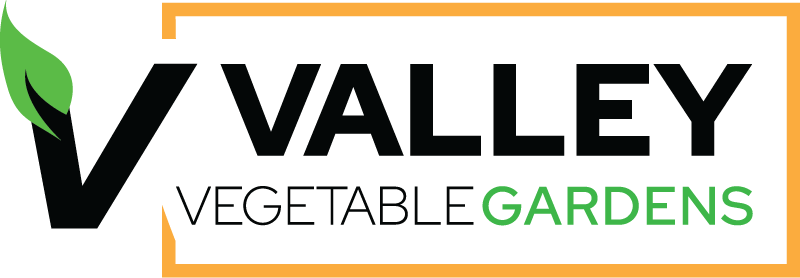Frequently Asked Questions
Can I design custom beds and herb boxes different than what you have on your site?
Absolutely! Please fill out our contact form or email us at valleyvegetablegardens@gmail.com with your vision and specifications.


What’s the benefit of raised beds?
Raised beds are easier on your back and allow for a much more controlled environment to grow your vegetables. There is more adequate space to control the soil, drainage, water usage and pests.
How long will my raised bed last?
Our wood beds are most commonly made from Doug Fir and should easily last at least ten years depending on environmental factors. We offer a variety of other tools to make your beds last as long as possible such as high-quality Tung oil stain, interior wood plastic liners to keep the soil separate from the wood, as well as using metal sheets for bed walls. Redwood and Cedar are naturally more rot resistant and will naturally last longer than Doug Fir. Stone and concrete are also options we provide that can last a lifetime.


What type of materials do you make the raised beds out of?
The most common wood used to craft our garden boxes is Doug Fir. We work with Redwood and Cedar as well, but these materials are significantly more expensive. We work with corrugated metal sheets for sides with wood frames and offer rock or block planters as well. Have your own special wood you want us to use? No problem!
To stain or not to stain? What is Tung Oil?
We highly recommend having us install your raised beds with stained wood to optimize their life and their appearance. We use 100 percent all-natural Tung Oil to stain our wood. Tung oil is a quality oil from the Tung Tree native to China. Tung oil is an all-natural, waterproof, FDA approved, food safe, easy to apply, durable oil. It has a beautiful honey finish, doesn’t yellow over time, will not mold, contains no VOC’s and is environmentally friendly. Tung oil is not diluted with solvents like Linseed Oil is, so tung oil is not combustible. The finished product speaks for itself.


How often do I need to water?
We generally recommend once a day in the very early morning. For the free-standing herb boxes turn your water on and wait until you see the water begin to drain underneath. Then, subtract a minute from that length and that’s about what your duration should be. For the raised bed, time how long it takes to soak 3 inches of the soil and that should be a good length to run daily. Gardens can be tricky and not all plants are the same. There is typically constant daily adjustments based on weather, specific plants and conditions.
How does your irrigation set up work?
It’s so important for gardens to have enough water as well as not too much. And with water being our most precious resource and a scarce commodity in California it’s important to control to the best of our ability. We like to use a smart timer controller that we attach to your hose bib. This controller can be controlled manually or with an app on your cell phone. This allows the customer to have optimum control and see important statistics about their usage, modify their program times and use smart water technology. This timer connects to drip line tubing with runs to each garden bed and connects to a drip grid. The drip grid is in place to give efficient coverage to the entire bed at once.


Do I really need a Smart Timer?
We highly recommend a smart timer for a variety of reasons. Plants can be very picky about specific amounts of water. Not too much but also not too little to keep them thriving. The smart timer allows for quick adjustments from your cell phone anytime, anywhere, to keep your garden on point through unpredictable weather fluctuations. We live busy lives and gardens can be a daily burden to water with lots of room for human error. Let the timer do the work for you!
What about gophers, moles and rats?
For our raised beds we tack a heavy gauge fine mesh wire fence material to the bottom of the bed so no critters can come up through the bottom. The height and bench sides also keep those same critters from getting in. If rabbits or deer are an issue, we offer custom drop-down cage side panels.


How much sun does my garden really need?
We recommend your garden gets at least 6 solid hours of full sunlight a day.
Is compost necessary for a garden?
Absolutely! Think of your plants like any other living thing. They require proper nutrients, minerals, vitamins, oxygen, water, and sunlight to not only survive but to thrive. An imbalance in these will cause a plethora of problems such as not producing fruit, becoming susceptible to diseases and pests, root rot, yellowing of leaves, wilting, rotting, and dying. Fully processed compost combined with soil creates the optimum growing environment for vegetables.


What are Red Wigglers and are they necessary?
Red wigglers are a type of red worm that are very beneficial to a garden’s soil and considered a garden’s best friend. They not only aerate the soil, but they make it easier for other nutrients and water to get to the roots. They also create what is known as “black gold,” also known as worm casting. This worm processed soil is a natural fertilizer and your vegetables thrive in it!
When do I need to fertilize?
Vegetables growing in well drained, porous soil can be fertilized every 3-4 weeks or so during the growing season. We recommend more often for sandy soils. Too often can cause burning of the plants so its important to know your soil type.


Do solar lights affect my vegetables growth?
Although plants need a certain amount of darkness, the solar cap lights we use in our boxes produce about 5 lumens at the most for a few hours at night. This is not even close to a significant enough amount of light to affect the vegetables growth patterns. For some perspective, when farmers grow plants indoors under grow lights they use at least 3,000 lumens of direct light per square foot. I’ve had solar lights on my garden boxes for years and had nothing short of amazing crops all year!
How important is drainage? Do I need gravel at the bottom of my bed?
Drainage is one of the most important factors for a garden of any type. Without proper drainage plants are easily susceptible to disease, root rot, mold, fungus and death. Good drainage ensures soil aeration, no loss of nutrients and minerals, and healthy roots. Healthy roots mean healthy plants.
It is a myth that gravel needs to be placed at the bottom of your pots and garden beds for drainage. All gravel does is increase the water saturation zone and leads to root rot. For successful drainage simply use good well drained soil, make sure you’re not on compacted soil and that any containers used have plenty of holes in the bottoms.


Do I need to change out my soil every year?
No. We recommend simply adding to and amending your garden bed soil before each growing season with compost, soil amendments, fresh potting soil, or garden soil.
What’s a beneficial insect?
We rely on pollinators such as bees, butterflies and moths to pollinate our flowers and predators such as ladybugs and praying mantis to help reduce or eliminate the bad insects that can destroy our crops.


What growing zone is Visalia?
If you live in or near Visalia, CA, for most of the area the Hardiness Zone is 9B. However, smaller portions of Kings County and Tulare County also have microclimates with Hardiness Zones 9A, 10A, 10B, and in very small areas 6A, 6B, 7A and 7B.
Why do my tomatoes get a rotten bottom before they get ripe?
This is a very common problem called blossom end rot. Basically, the tomato is having trouble absorbing enough calcium up to the fruit from the roots. It can also be caused by roots being waterlogged or over fertilized. Consistent watering is key and adequate space between each plant. You can always test your soil and if it is lacking calcium, we recommend adding some Lime or Gypsum.


You didn’t answer my question!
Email us at valleyvegetablegardens@gmail.com or fill out our contact form with your questions!

